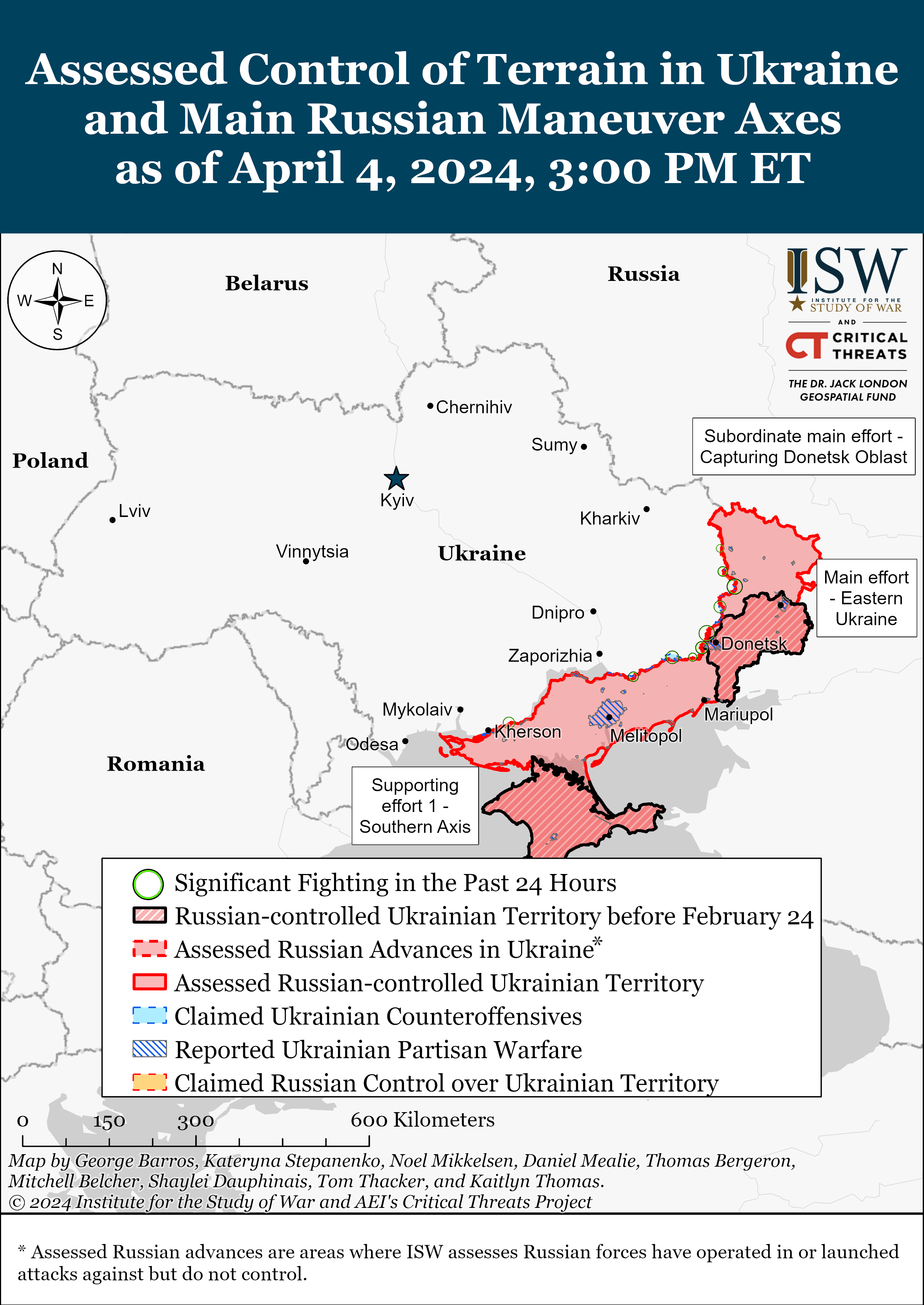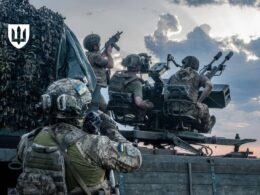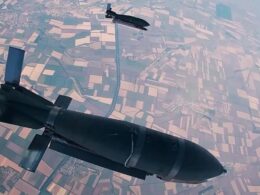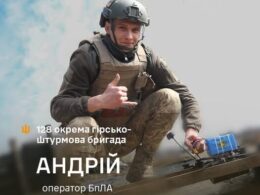Peskov accused NATO of moving towards Russia's borders and expanding its military infrastructure, probably alluding to Finland and Sweden recently joining NATO. Russian officials claim this to be an existential threat to Russia and use this narrative to justify the war in Ukraine.
President Vladimir Putin recently stated that a full-scale war between NATO and Russia is "undesirable but possible." The narrative of the threats from NATO is part of ongoing efforts to force the West into self-deterrence and less support for Ukraine, ISW reports.
Russia shows signs of preparing for a potential conventional war with NATO, including through military reforms and recreating military districts in western Russia, for example, the Leningrad Military District on the border with Finland. Russian officials blame NATO for giving Russia a reason to reconstitute this military district, according to ISW.
Another Russian attempt to portray the West as the enemy was at the meeting of the Commonwealth of Independent State (CIS) chiefs on 4 April. There, Valery Gerasimov, the Russian Chief of the General Staff, called the West a "sponsor of international terrorism" and appealed to CIS members to increase cooperation, focusing on "well-equipped and well-trained armed forces" for CIS countries, as per ISW.
Gerasimov is trying to portray Russia as the leader of an imagined coalition of post-Soviet and non-Western states that oppose the collective West. However, CIS countries' governments, apart from Belarus, have not expressed open support for Russia's aggression against Ukraine or recognized Russia's illegal annexations of Ukrainian territories, ISW notes.
Other key takeaways from the report:
- Russian Defense Minister Shoigu threatened France in response to Macron's statement about potentially deploying French troops to Ukraine, attempting to deter future Western military aid.
- Lavrov criticized Ukraine's "peace formula," claimed Russia's readiness to negotiate on favorable terms, and blamed the West for the lack of peace negotiations during a meeting with foreign ambassadors. Despite Russian officials' statements, ISW assesses that any Russia's suggestions of interest in negotiations are likely efforts to force Western concessions on Ukrainian sovereignty.
- Putin stated that Russia will face labor shortages and needs to increase productivity, modernize economic sectors, and continue relying on migration, signaling to Russian ultranationalists to stop their anti-migrant calls after the Crocus City Hall attack.
- Putin claimed that Russia's economy is not on a wartime footing but is allocating resources to develop its defense industry. Russia has been gradually mobilizing its defense industry to support the invasion of Ukraine, with roughly a third of its annual federal budget allocated to defense spending. However, the Kremlin likely cannot rapidly transition to total economic mobilization as the Soviet Union did during World War II.
- An unspecified senior NATO official told Russian opposition news outlet Vazhnye Istorii that NATO intelligence agencies have not observed indications of Russia preparing for a large-scale partial mobilization wave. The official stated that Putin wants to postpone mobilization to demonstrate strength after the March 2024 Russian presidential election and assessed that Russia lacks the resources needed for a major offensive. ISW claims Russian authorities would likely intensify crypto-mobilization efforts before conducting another unpopular mobilization wave.





